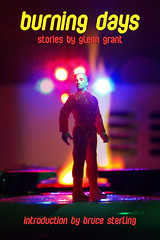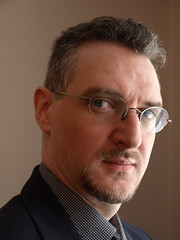This weekend is Readercon! Here’s what I’ll be up to:
Friday July 13
11:00 AM G Subversion Through Friendliness. Glenn Grant, Victoria Janssen (leader), Toni L.P. Kelner, Alison Sinclair, Ruth Sternglantz. In a 2011 review of Vonda N. McIntyre’s classic Dreamsnake, Ursula K. Le Guin quotes Moe Bowstern’s slogan “Subversion Through Friendliness” and adds, “Subversion through terror, shock, pain is easy—instant gratification, as it were. Subversion through friendliness is paradoxical, slow-acting, and durable. And sneaky.” Is subversion through friendliness a viable strategy for writers who desire to challenge norms? What are its defining characteristics? When do readers love it, and when does it backfire?
4:00 PM ME Oblique Strategies for Authors. Marilyn “Mattie” Brahen, Gavin J. Grant, Glenn Grant (leader), Katherine MacLean, Eric M. Van, Jo Walton. In 1975 Brian Eno and Peter Schmidt published a deck of cards called “Oblique Strategies.” Each card provides a cryptic directive—such as “Use an old idea” or “Honour thy error as a hidden intention”—intended to help an artist deal with a creative block or dilemma. While many of the original strategies are useful for writers of fiction, others (such as “The tape is now the music”) are perhaps only appropriate for musicians and visual artists. Let’s brainstorm a deck of Oblique Strategies specifically designed to provide unexpected creative kicks for authors who are in a jam.
(Proposed by Glenn Grant.)
Sunday July 15
2:00 PM F When All You Have Is a Hammer, Get a Sonic Screwdriver. Debra Doyle, Lila Garrott, Glenn Grant, Graham Sleight (leader), Jo Walton. In an SF Signal podcast episode discussing Readercon 22, Jeff Patterson suggested that our traditional critical vocabulary may be ill-suited or inadequate for discussing space opera or hard SF. Is this true of hard SF in specific, or is there a broader problem of adapting mainstream critical vocabulary, largely evolved to discuss realistic fiction, to the particular problems of SF or fantasy? What are the specific aspects of the fantastic that seem to require special critical tools? Are certain critical terms borrowed from the fan or writer’s workshop communities, like “worldbuilding,” useful ways of extending our critical vocabularies?
Hope to see you this weekend in Burlington, MA!


